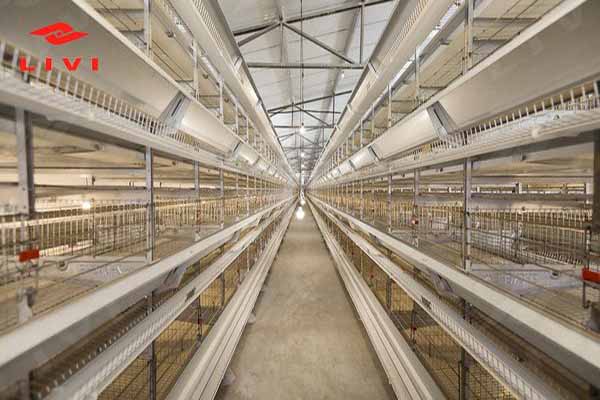What to Do if Ventilation in Chicken Farms in Tanzania is Poor
Time : 2025-04-24
When it comes to poultry farming, especially in Tanzania, ensuring that your chicken farm has adequate ventilation is crucial for the health and productivity of your chickens. Poor ventilation can lead to numerous issues, including respiratory problems, high mortality rates, and even the spread of diseases. So, what can you do if you find that the ventilation in your chicken farm in Tanzania is subpar? Here’s a comprehensive guide to help you out.
Assess the Current Ventilation System
Before you jump into any major renovations or replacements, it’s essential to assess the current ventilation system in your chicken farm. This assessment will help you identify the specific issues that need to be addressed. Here are some questions to ask yourself:
– Is the airflow consistent throughout the farm?
– Are there any gaps or leaks in the ventilation system?
– Is the air quality poor?
– Are the fans and other equipment functioning correctly?
Clean and Maintain the Existing System
Poor ventilation often results from an unclean or poorly maintained system. Start by cleaning the entire ventilation system, including fans, ducts, and filters. This process will remove dust, dirt, and debris that may be impeding the airflow.
– Wash the filters and fans thoroughly.
– Remove any obstacles that might be blocking the vents.
– Check the fans and motors for any signs of wear and tear.
Add Additional Vents and Fans
If your assessment shows that there are gaps or leaks in the ventilation system, it’s time to add more vents and fans. The goal is to increase the airflow and improve the air quality within the farm.
– Position fans strategically to create a consistent flow of air.
– Install additional vents in areas where the air is not circulating properly.
Control the Temperature and Humidity
Maintaining the right temperature and humidity levels is critical for the health of your chickens. Too much humidity can lead to the growth of mold and bacteria, while extreme temperatures can stress the birds.
– Use dehumidifiers to control humidity levels.
– Insulate the walls and roof to prevent heat loss or gain.
– Install thermostats to regulate the temperature in the farm.
Monitor Air Quality
Poor air quality can lead to various health issues for your chickens. Regularly monitor the air quality in your farm to ensure it’s safe for your birds.
– Use air quality monitors to check for carbon dioxide and ammonia levels.
– Ensure that the fans are not blowing ammonia-laden air into the pens.
Implement Biosecurity Measures
Poor ventilation can contribute to the spread of diseases in your chicken farm. Implementing biosecurity measures will help protect your birds from infections.
– Isolate new birds from the rest of the flock for the first two weeks after arrival.
– Sanitize all equipment before and after use.
– Ensure that employees wash their hands and change their clothes before entering the farm.
Train Your Staff
Your farm staff should be knowledgeable about the importance of proper ventilation and the role they play in maintaining it. Conduct regular training sessions to ensure they understand the following:
– The signs of poor ventilation, such as coughing, sneezing, and decreased growth rates.
– The importance of cleaning and maintaining the ventilation system.
– The biosecurity measures to prevent the spread of diseases.
Consult with Experts
If you are unsure about how to improve the ventilation in your chicken farm, it’s always a good idea to consult with experts. They can provide personalized advice and help you implement the best solutions for your specific farm.
– Hire a professional to assess your farm’s ventilation system.
– Seek advice from poultry experts and extension services.
– Attend workshops and seminars on poultry farming best practices.
Final Thoughts
Improving ventilation in your chicken farm in Tanzania is essential for the health and productivity of your chickens. By assessing the current system, cleaning and maintaining it, adding additional vents and fans, controlling the temperature and humidity, monitoring air quality, implementing biosecurity measures, and training your staff, you can create a more conducive environment for your poultry.
Remember, poor ventilation can lead to numerous issues, but with the right strategies and resources, you can ensure that your chicken farm thrives.












